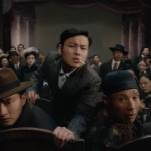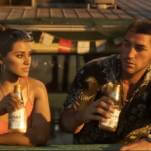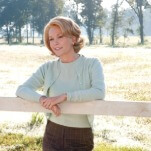In 1976, as they do every
summer, the McKotches vacation on the Cape in the Captain's House. The opening
section of Jennifer Haigh's near-perfect novel The
Condition
lingers over this last moment the family spent in the sun: Mother Paulette,
with her faultless Massachusetts pedigree; father Frank, the geneticist with a
roving eye who buries himself in his work; eldest Billy, the golden boy and
apple of his mother's eye; sister Gwen, 13 years old but still short of
puberty; and youngest Scott, whose uncontrollable energy and tantrums wear down
the whole family. Then Frank has a horrible realization that something is wrong
with Gwen. She isn't just a late bloomer—she's defective. "In a year the
house will be sold. Frank and Paulette McKotch will communicate through
lawyers," Haigh writes. "It is the last summer for this family. Nothing will
ever be the same."
The shadow of their
infinite promise, together and individually, hangs over the rest of the novel.
In 1997, Frank has pinned his fading quest for scientific glory on a nubile
young grad student. Paulette is inexplicably smitten, in late middle age, with
a rootless carpenter. Billy lives half in the closet, avoiding his family as
much as possible while making the scene in New York. Scott toils at a
corporate-owned fake prep school, his marriage going downhill while his son Ian
rampages through second grade. And Gwen, whose life was most directly changed
by that long-ago summer's diagnosis of Turner's syndrome, buries herself in
museum work for which she is overqualified, and gives up on the dream of ever
being loved.
American literature has
long mined the New England aristocracy for its poignant, slightly decadent
evocation of worlds gone by. Haigh manages to marry that sensibility to a
thoroughly modern tale of fractured family, and the result has a timeless,
effortless grace. The PEN/Hemingway winner fulfills the promise she showed in Mrs. Kimble, expanding her voice to encompass five distinct
life experiences, all of which she inhabits with complete command. As the
McKotches rush toward their inevitable collision back on the Cape of their youth,
their hard-won epiphanies sink into the surf and rise with the cresting waves,
and readers may wind up holding their breath, hoping against hope that a few of
them will discover some bliss amid their collective erosion.







































